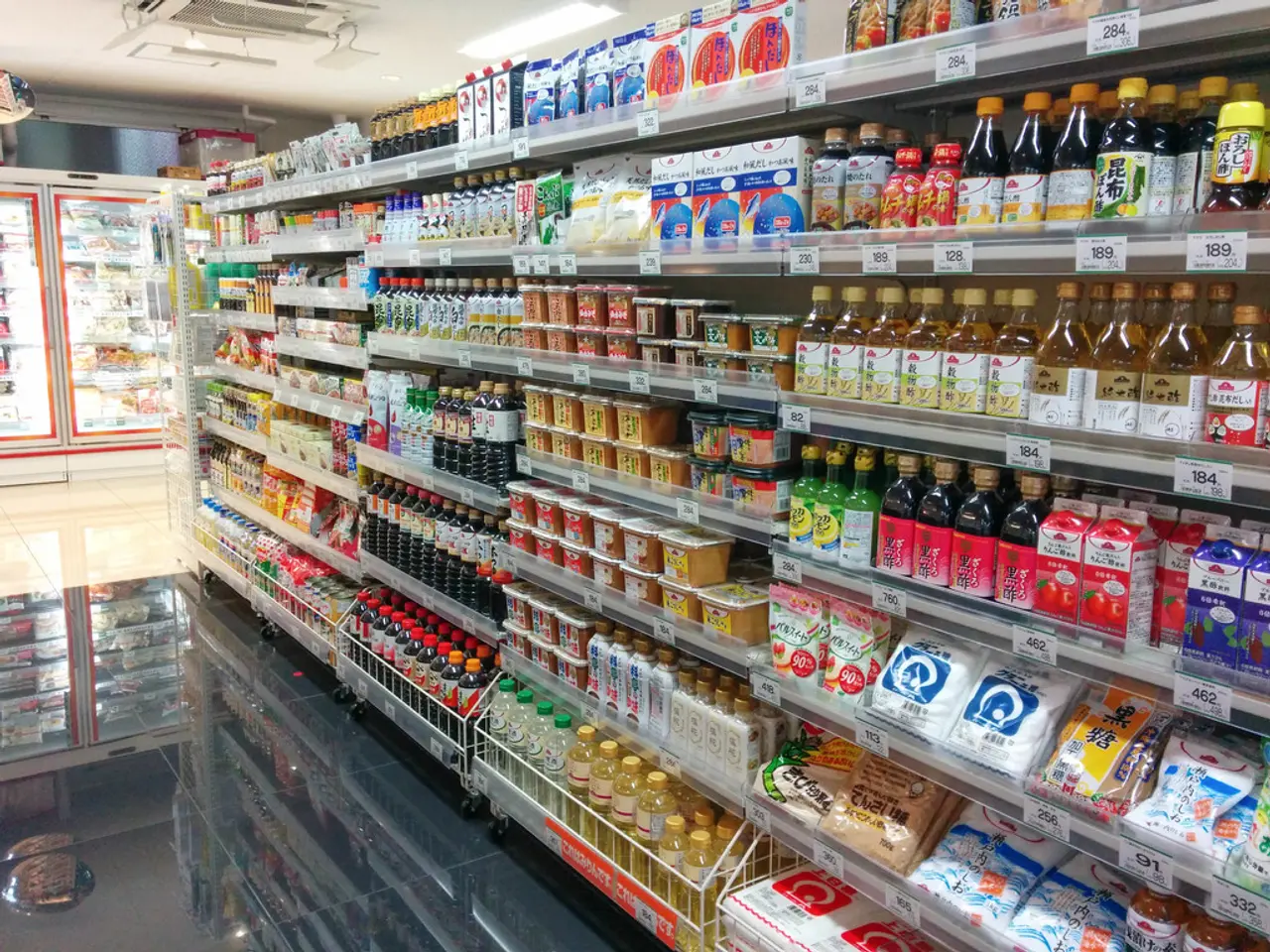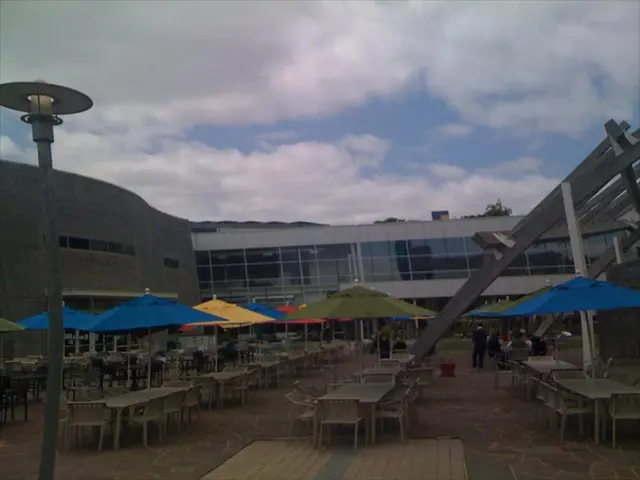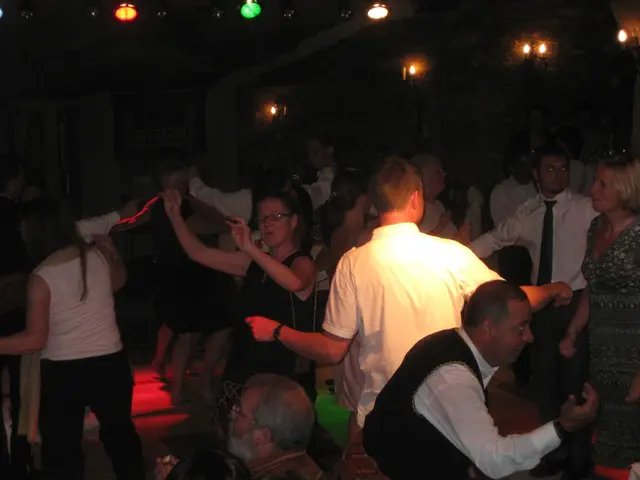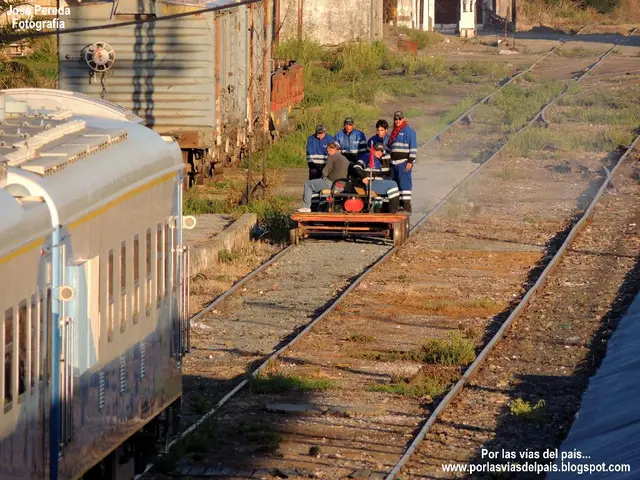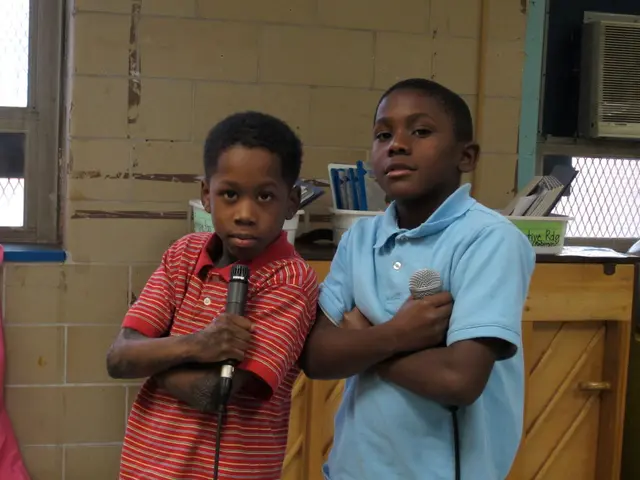Adjusting to life amidst sanctions, a Russian middle-class duo seamlessly readjusts their lifestyle
In the outskirts of Moscow, Sergei Duzhikov and Maria Tyabut, a cosmetics company employee, are navigating the economic challenges posed by sanctions and geopolitical tensions. With a combined income of around 300,000 rubles, they find themselves in a relatively comfortable position, higher than the average wage for one person. Despite warnings of a looming recession and high inflation, they feel their economy has adapted successfully to Western sanctions.
The Russian economy, marked by volatility since the Ukraine offensive in 2022, has reported strong economic expansion in 2023 and 2024 due to defense spending. However, it is now slowing down. In response, Moscow has ramped up production of domestic goods and shifted trade to "friendly" nations like China, reducing reliance on Western goods.
In the face of Western brands exiting the market, Russians have embraced local alternatives. For instance, the fast-food landscape has seen a shift with the rise of Russian-owned chains like *Vkusno i tochka* ("Delicious, Full Stop"), a popular replacement for McDonald’s. Danone’s operations were sold to local interests connected to political figures, and supermarkets have found alternatives to Western products, including a domestic Camembert cheese that Maria enjoys.
The suspension of direct flights between Russia and Europe and tightened entry restrictions for Russians have led to an increase in domestic travel. Russians are also seeking vacation spots in countries less affected by Western sanctions or politically aligned with Russia, such as Venezuela and parts of Latin America.
In daily life, Russians tend to save more and spend less on large purchases amid economic uncertainty, with retail trade volumes showing a slight decline. Financial sanctions have limited access to international payment systems like Visa and Mastercard, prompting Russia’s Central Bank to regulate card validity and payment processing domestically.
Despite these challenges, some middle-class Russians report limited complaints about quality and availability of goods. Maria, for example, hasn't found any brands that she can't live without since Western brands have left the market. The pair buys Russian goods for their home and stocks their Chinese-made fridge with them.
Inflation in Russia has been running high for over a year, exceeding the central bank's target. However, Sergei and Maria, despite rising prices, are not "crying" about it and noted that increases are happening "little by little."
Sergei, who previously owned a Korean-made Kia, had to wait "three months" for spare parts due to sanctions, leading him to sell his car and replace it with a similar Chinese one. The couple has taken vacations across Russia and Latin America, finding welcoming destinations like Venezuela, a nation of "friendly people who love Russians."
Maria and Sergei's two-bedroom apartment in Mytishchi, Russia, has been recently renovated, offering a glimpse into their comfortable lifestyle despite the economic challenges. They are among the many Russians adapting to a more insular economy shaped by sanctions and geopolitical tensions.
- The Russian economy, which has shown strong expansion in 2023 and 2024 due to defense spending, has slowed down in response to the geopolitical tensions, causing a shift in production and trade to countries like China.
- In the sphere of fast-food, Russians have welcomed local alternatives, such as the Russian-owned chain Vkusno i tochka, which has risen as a popular substitute for McDonald's.
- Domestic travel has experienced an increase due to the suspension of direct flights between Russia and Europe, leading Russians to seek vacation spots in less sanctioned or politically aligned countries, like Venezuela and parts of Latin America.
- While inflation has been high in Russia for over a year, exceeding the central bank's target, middle-class Russians like Maria and Sergei have adopted a more insular lifestyle, saving more, spending less, and adapting to the availability of local goods, with Maria finding no brands she can't live without since Western brands have left the market.
